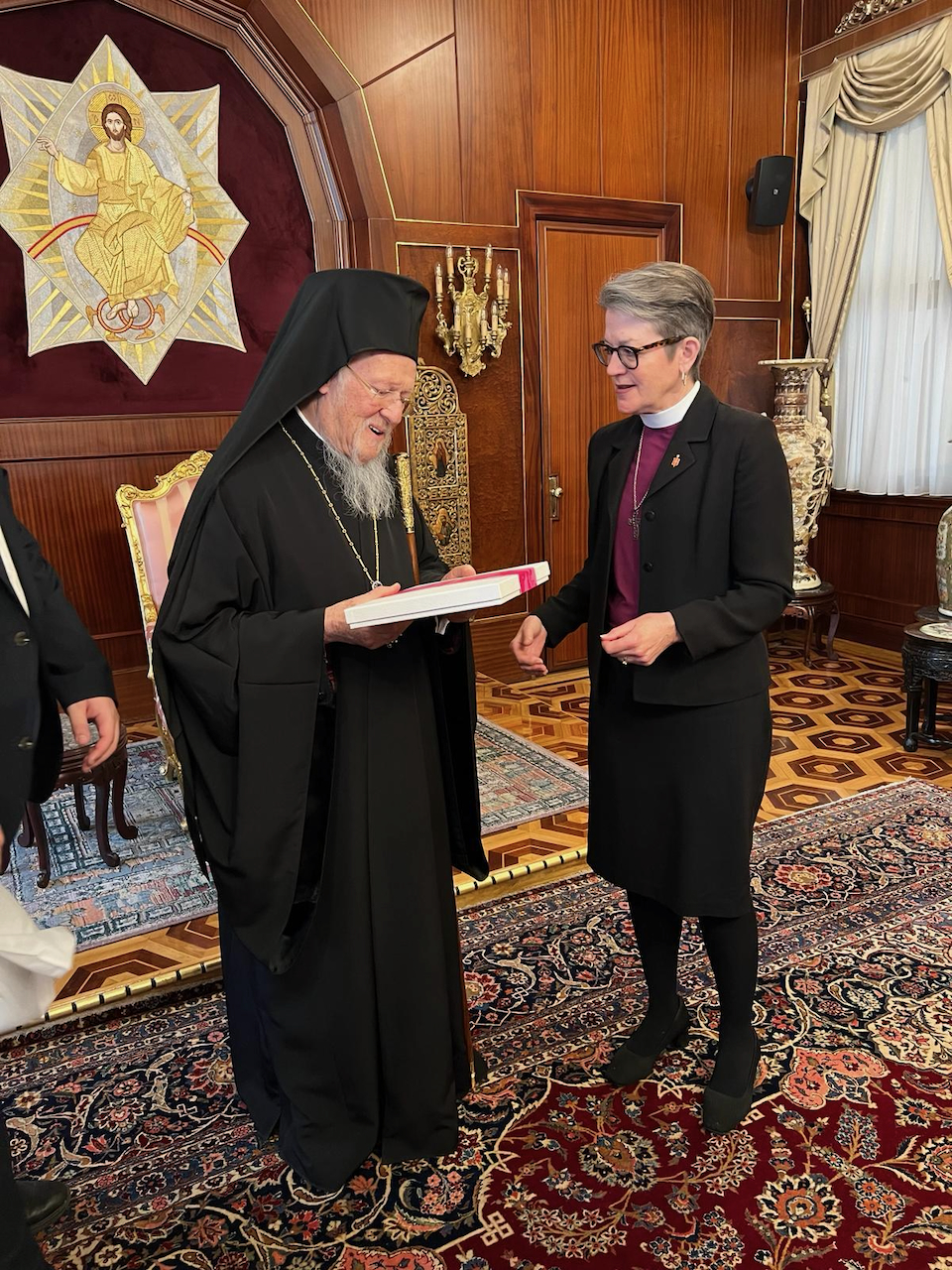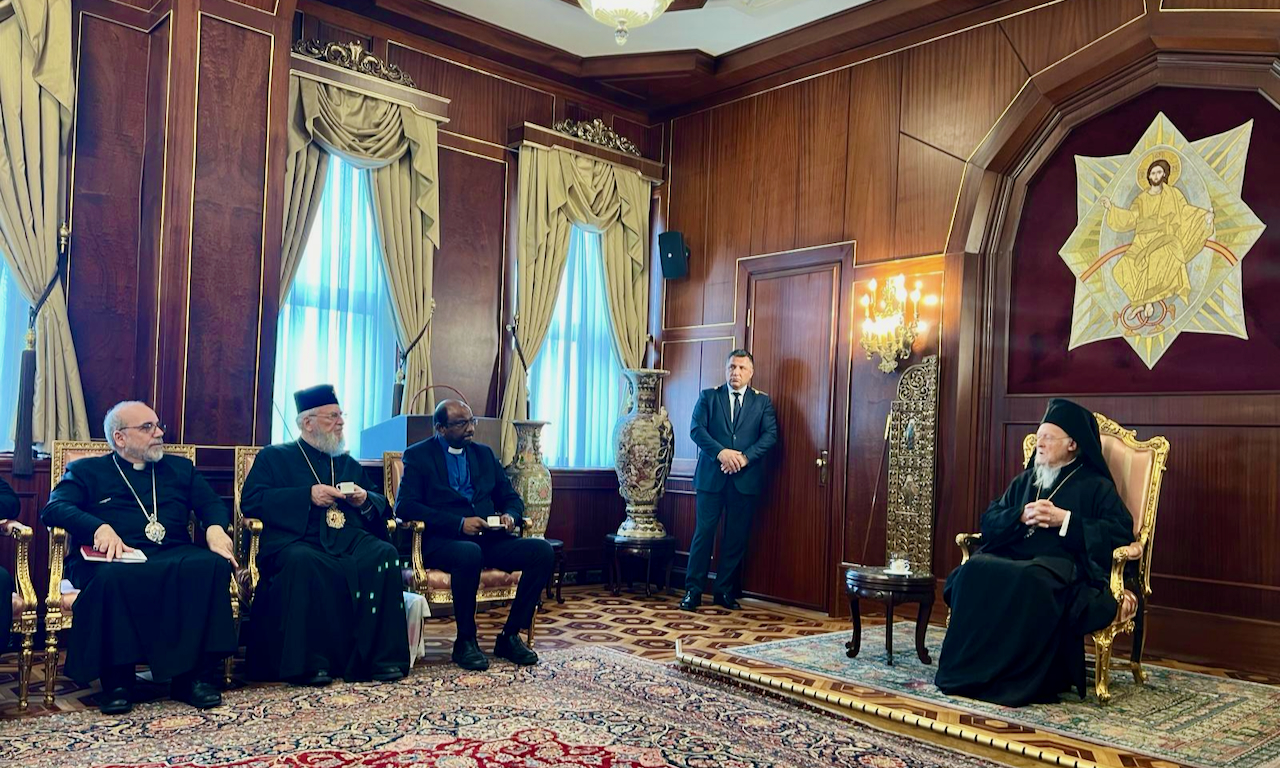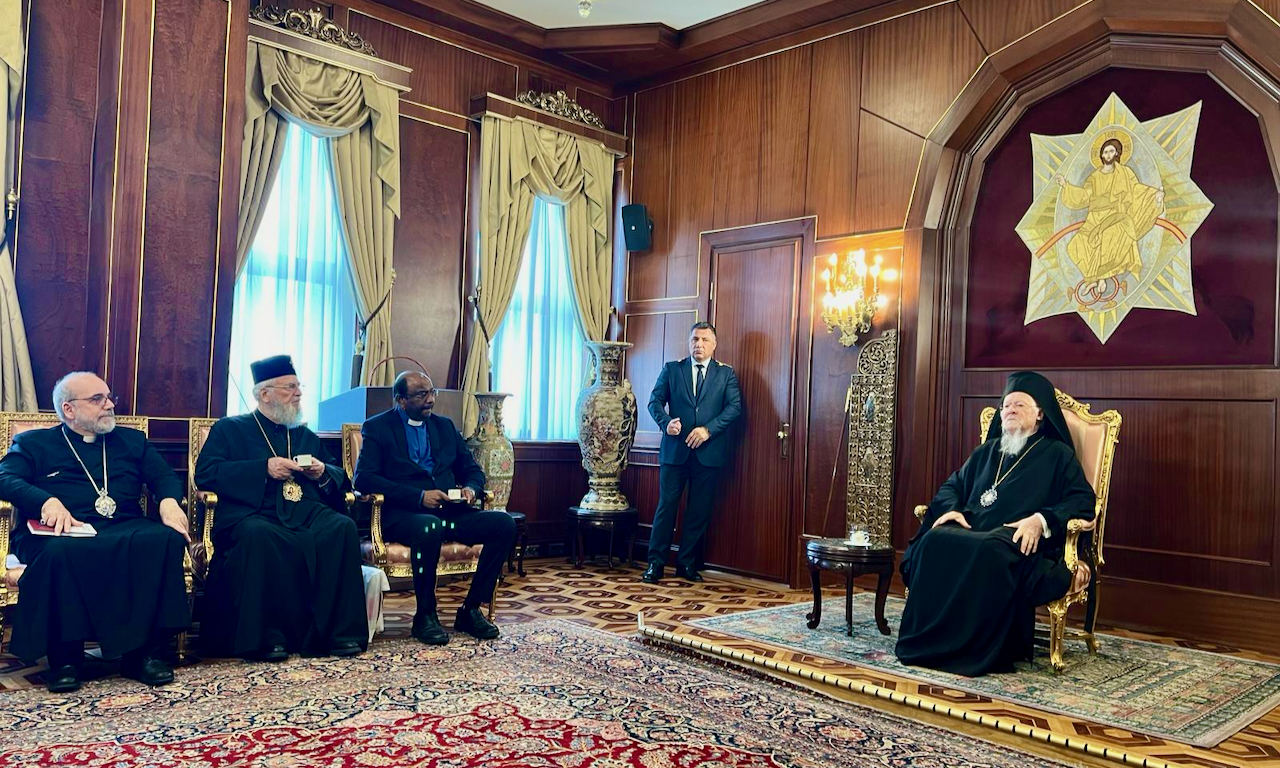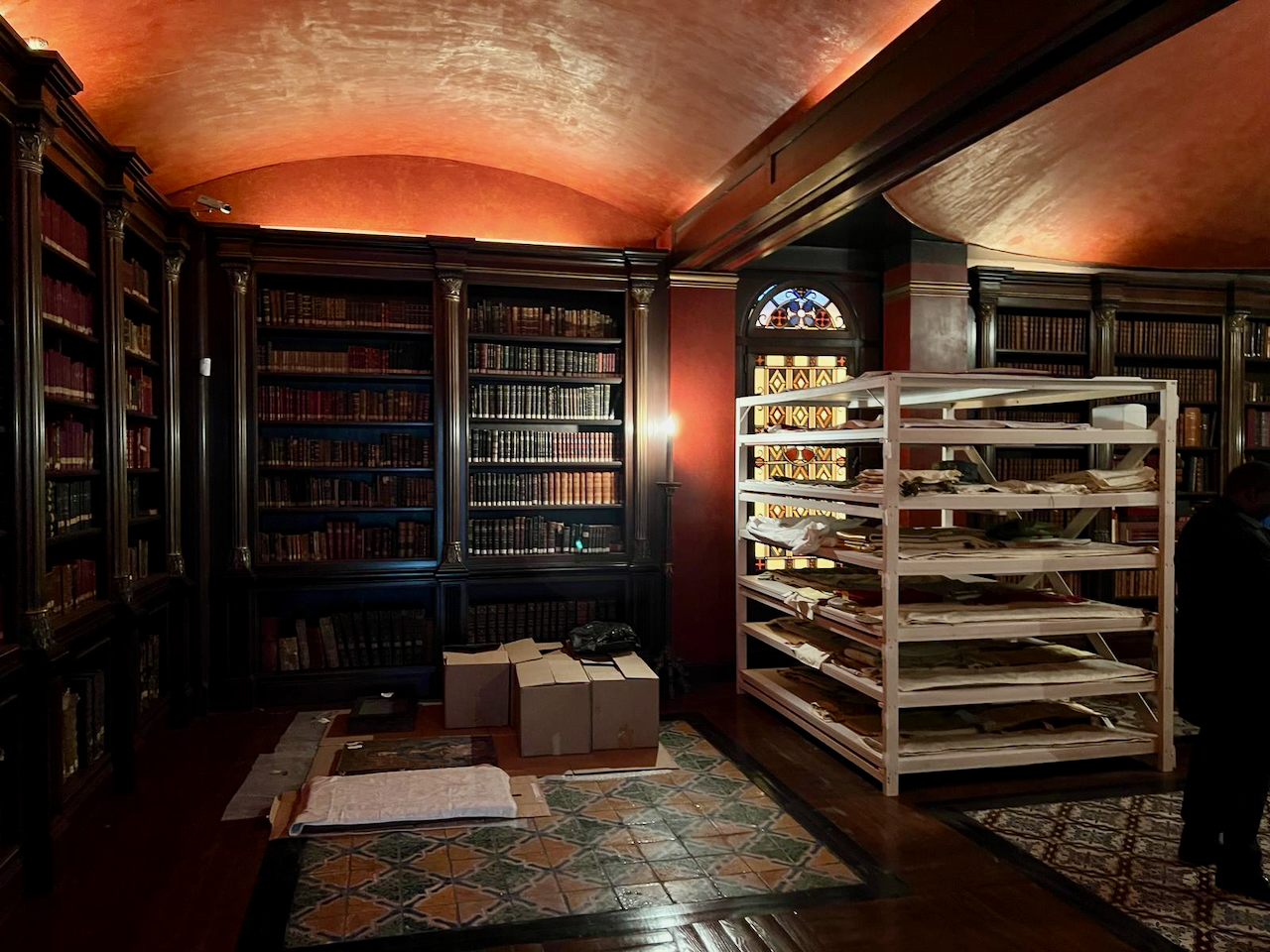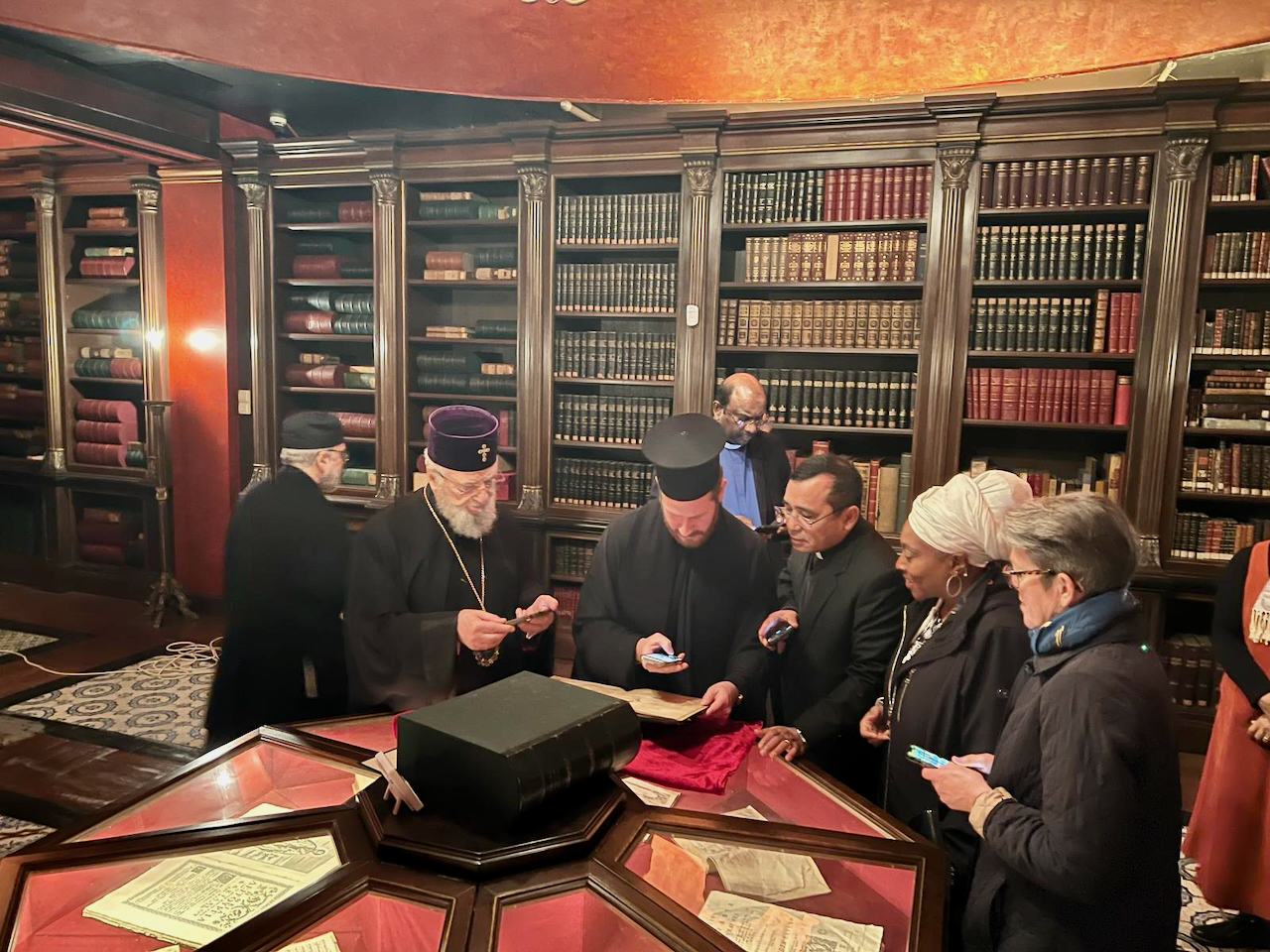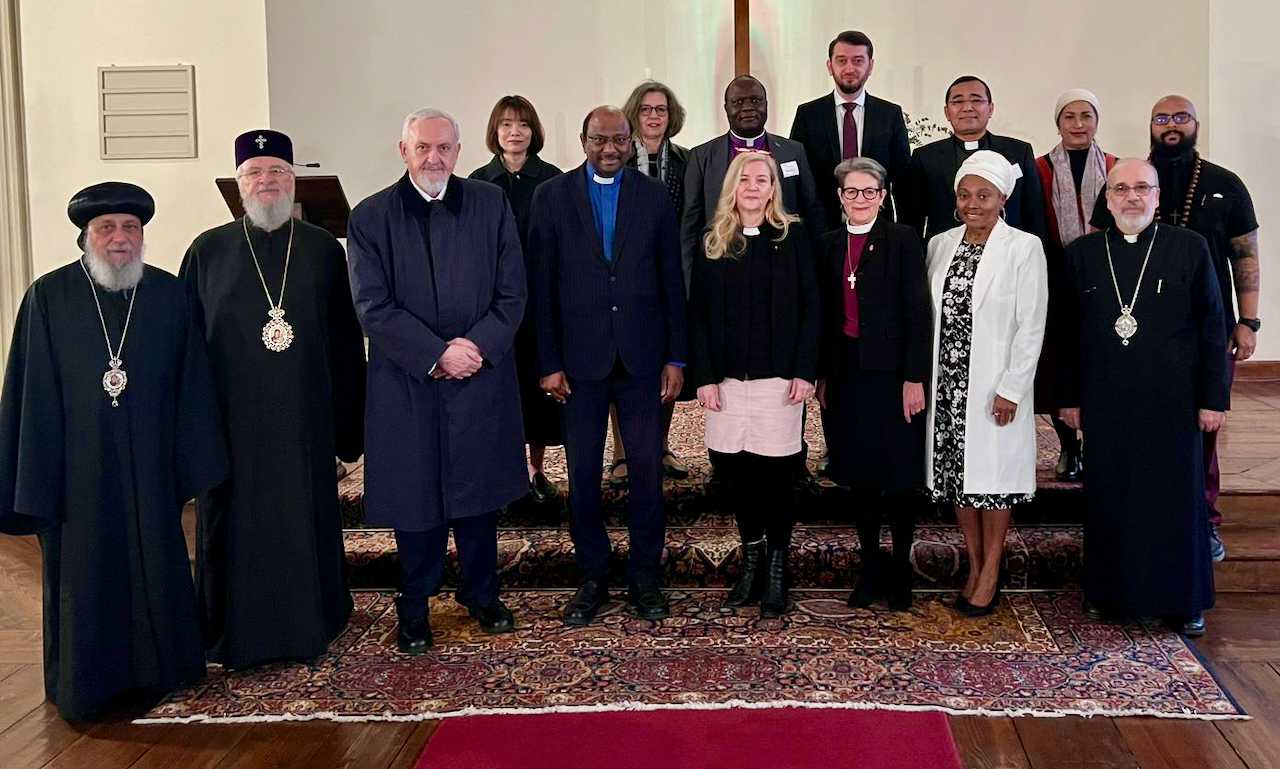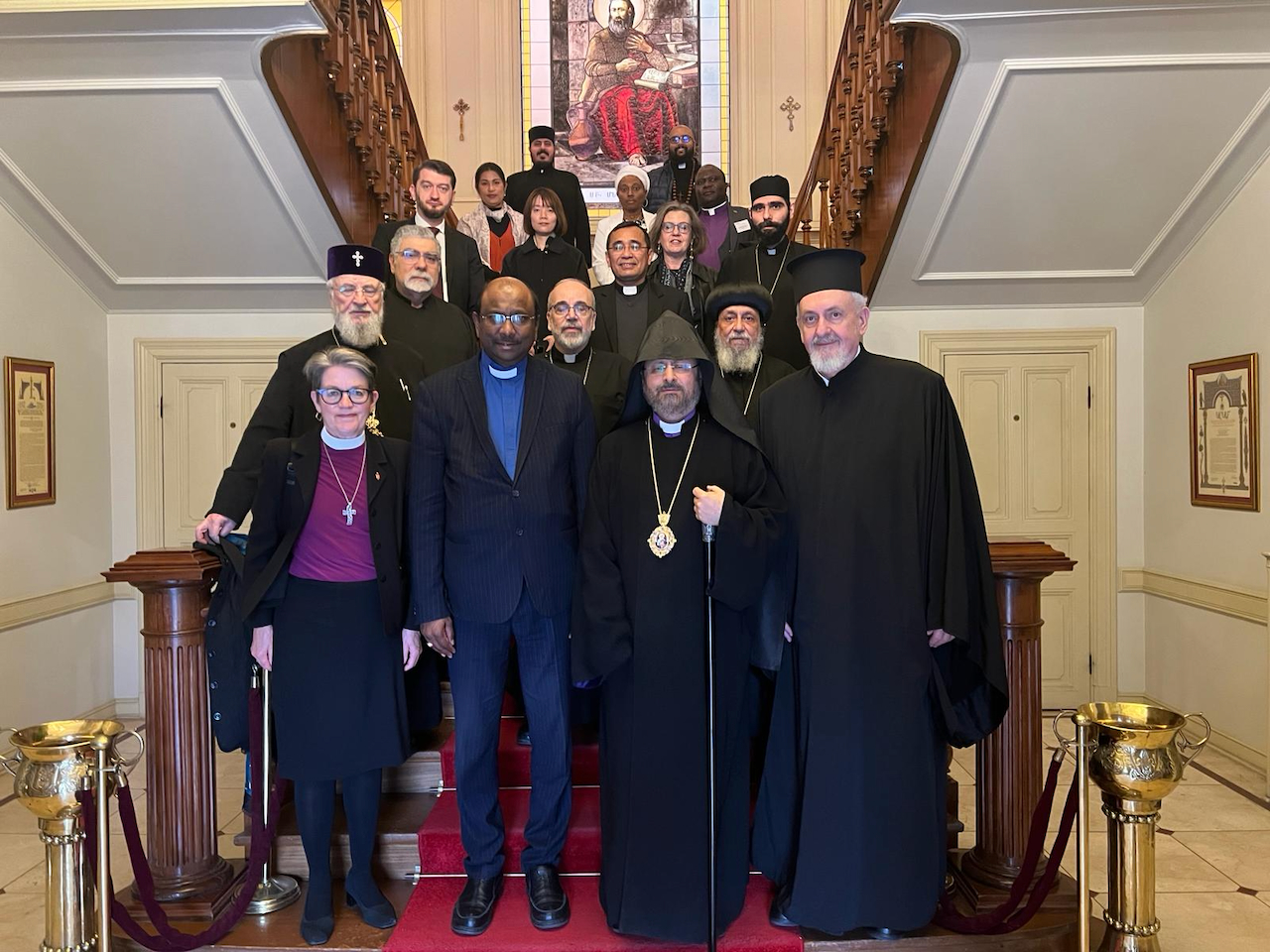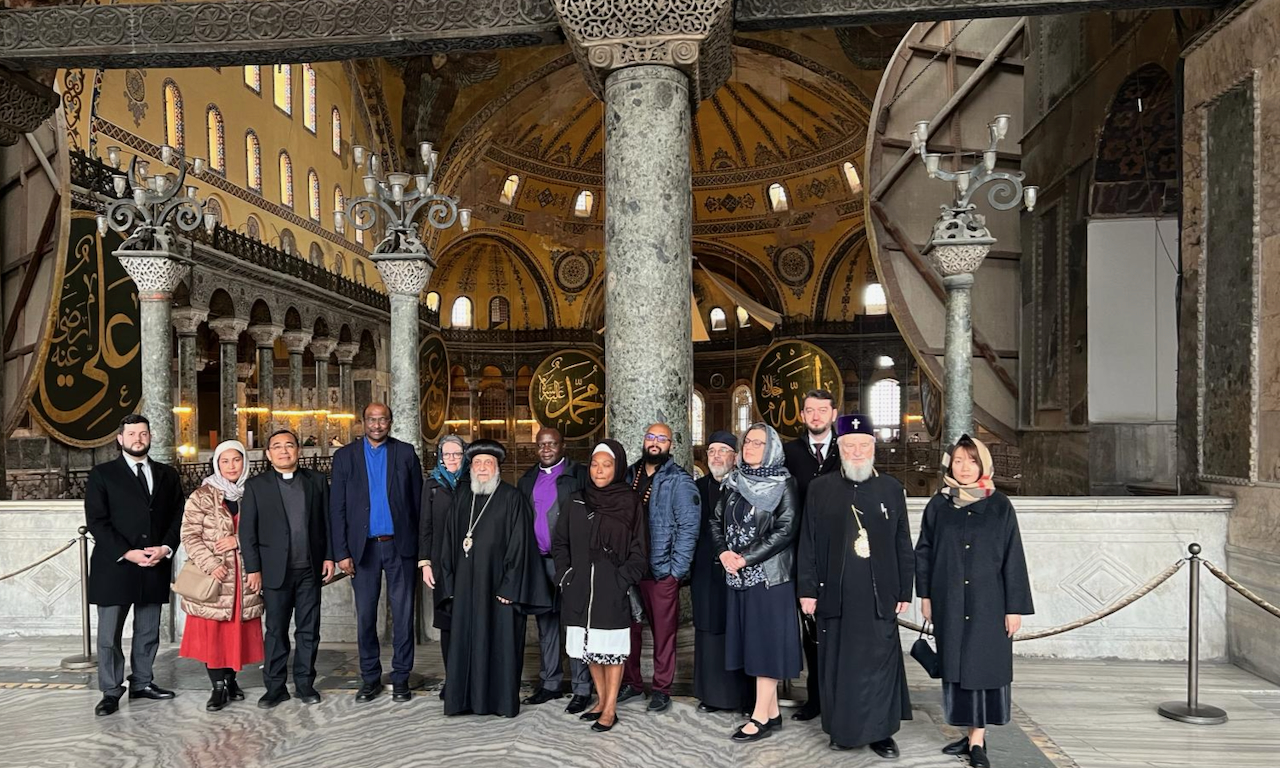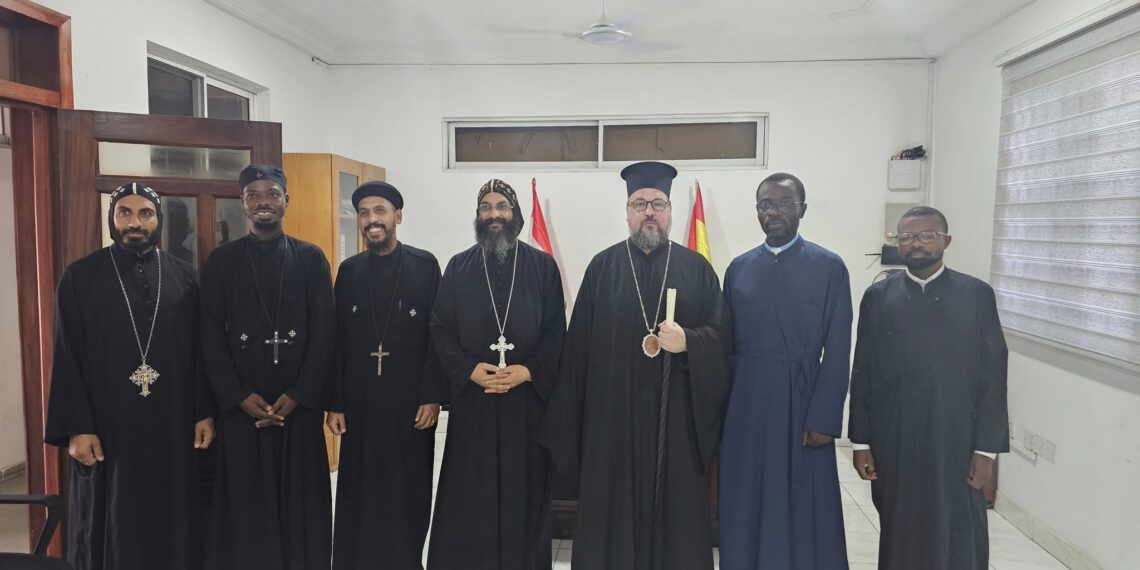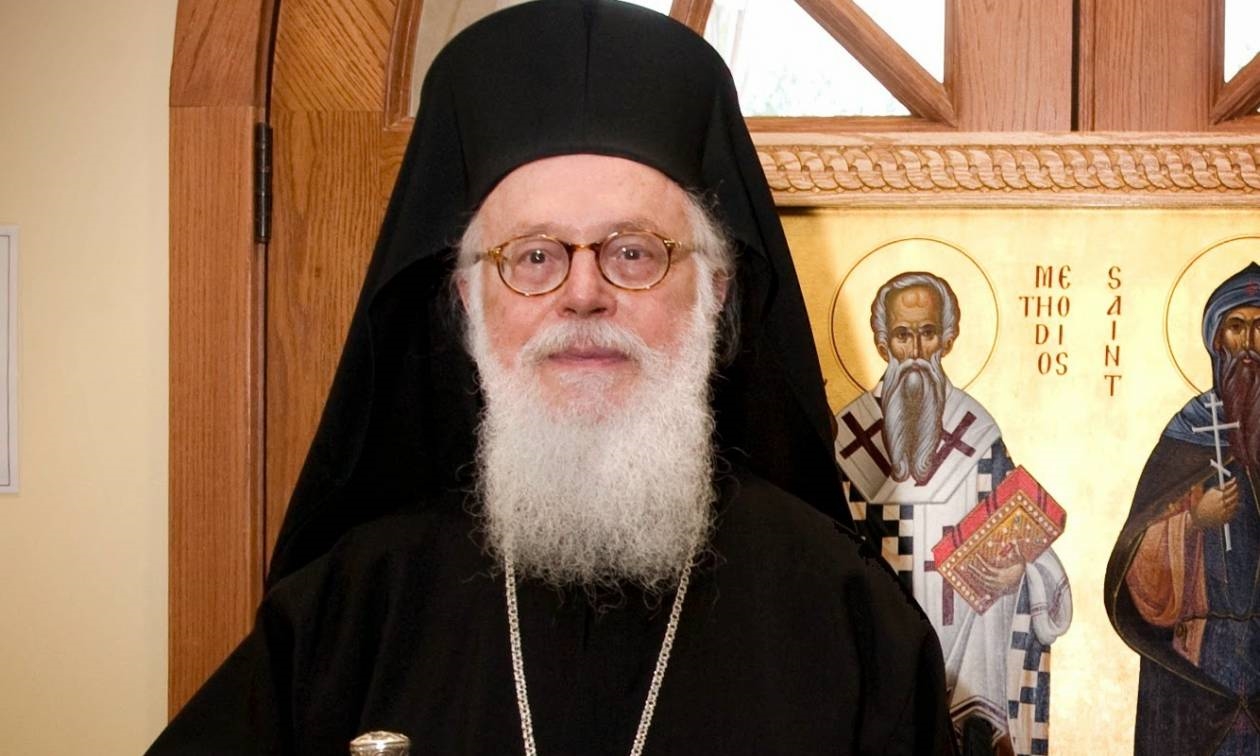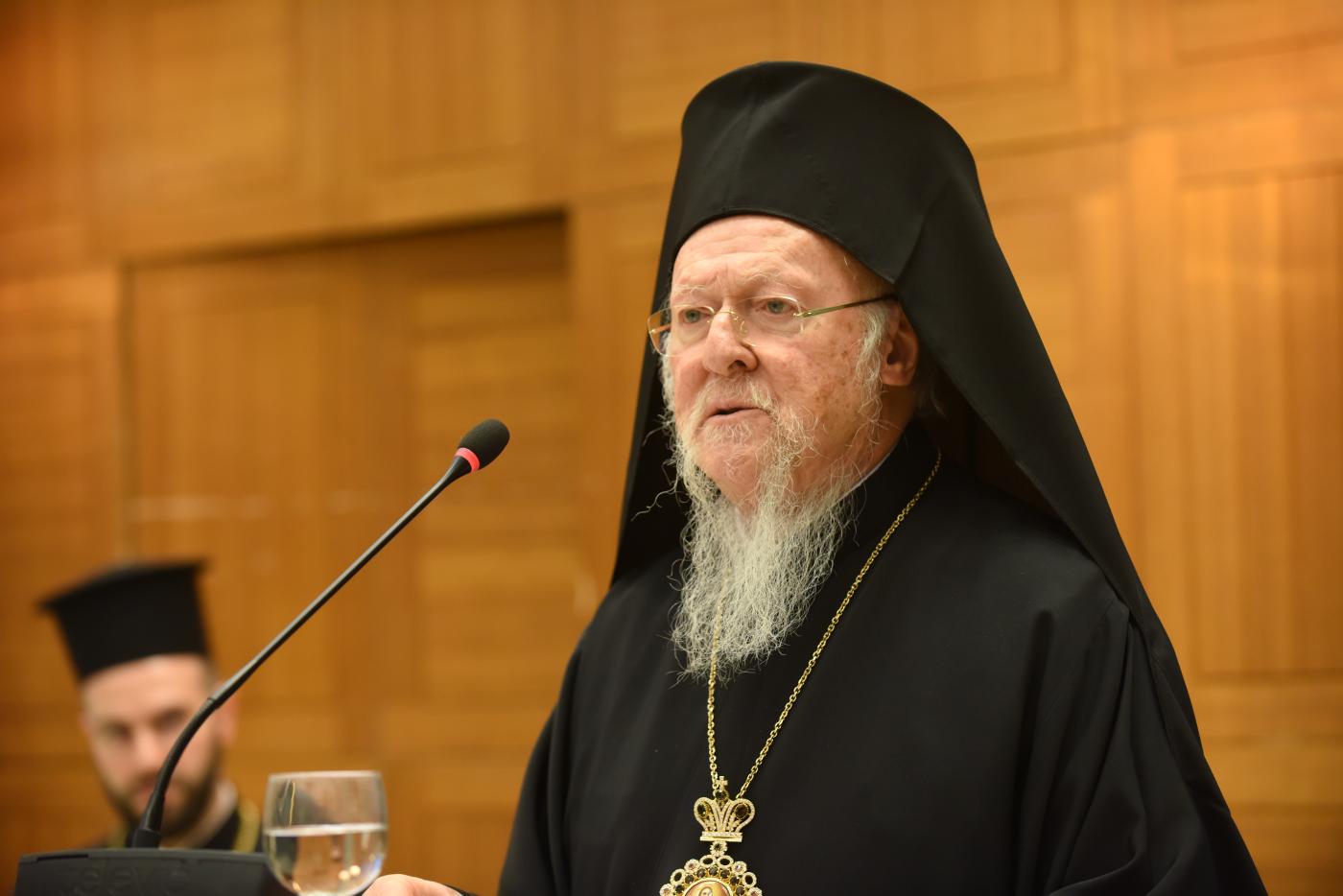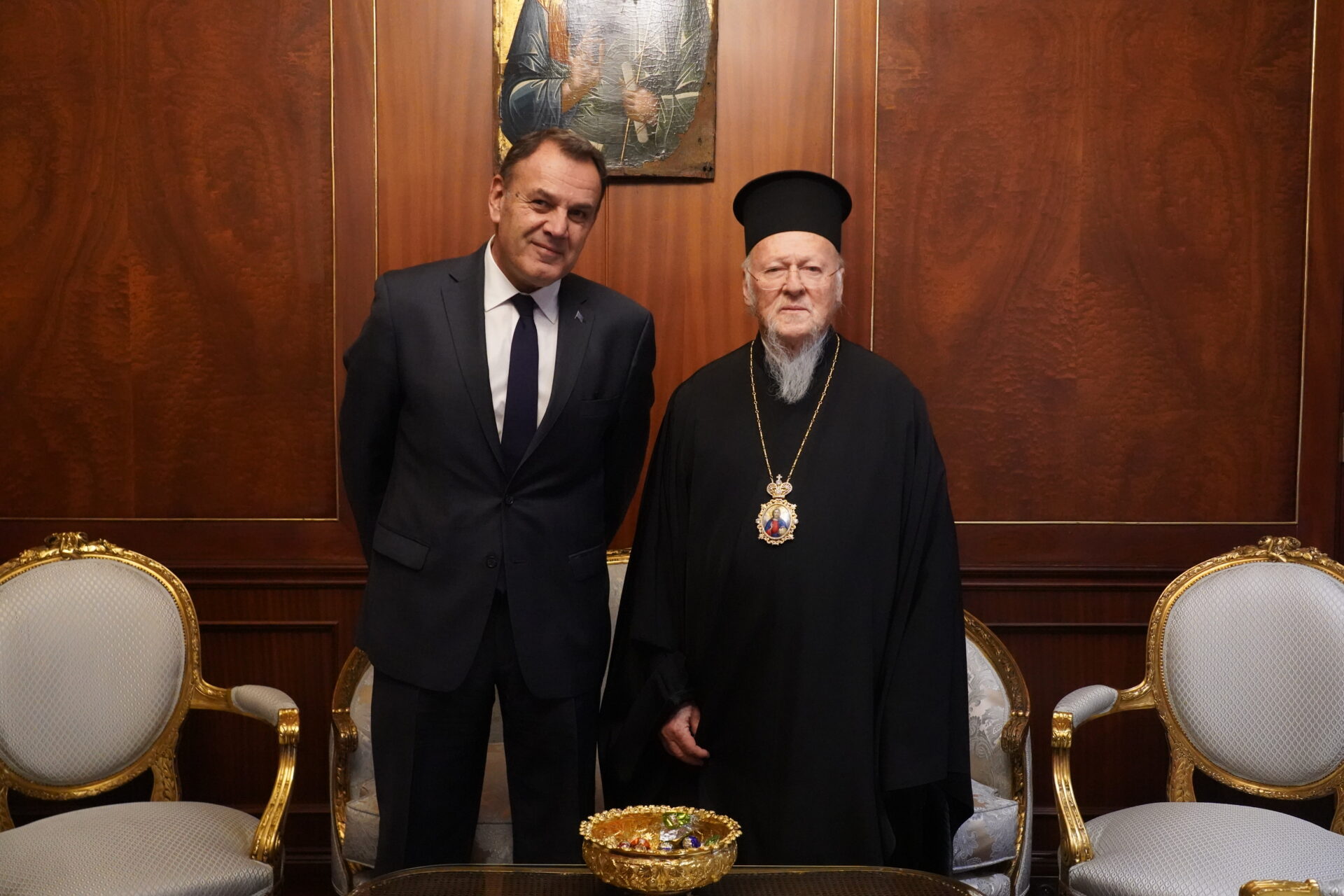New WCC Permanent Committee on Consensus and Collaboration holds inaugural meeting in Constantinople
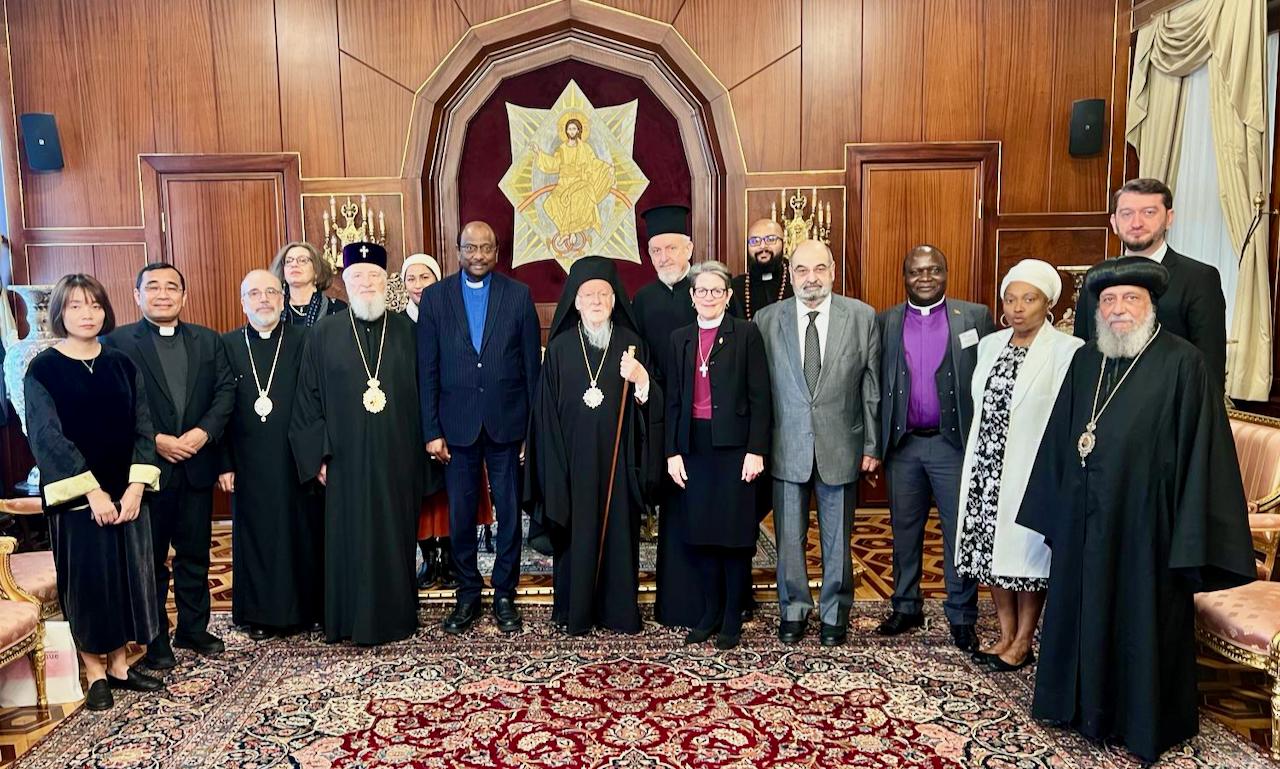

The new World Council of Churches (WCC) Permanent Committee on Consensus and Collaboration is holding its inaugural meeting from 10-14 March in Constantinople.
This is the first meeting of the new committee elected in Geneva by the central committee at its first full meeting following the WCC 11th Assembly.
The agenda includes orientation, community building, and a review of the committee’s mandate. It also includes a review of membership matters, a report from the WCC Commission on Faith and Order, and a visit to the Ecumenical Patriarchate. Participants include members of the Permanent Committee on Consensus and Collaboration, the WCC general secretary, and staff responsible for church and ecumenical relations, membership matters, and Faith and Order.


The meeting is taking place at the invitation of His All-Holiness Ecumenical Patriarch Bartholomew and is hosted by His Eminence Elder Metropolitan Emmanuel of Chalcedon, WCC executive committee member and co-moderator of the Permanent Committee on Consensus and Collaboration.
Committee members plan to increase their understanding of the WCC Strategic Plan 2023-2030 for aligned initiatives; follow up on previous mandate recommendations; discuss membership matters for effective decision-making on new applications; gain insight into current Faith and Order Commission work.
Source: oikoumene.org
The following in the greeting of His All-Holiness Ecumenical Patriarch Bartholomew:
Greeting Remarks
by
His All-Holiness
Ecumenical Patriarch Bartholomew
to
the WCC Permanent Committee on Consensus & Collaboration
(Wednesday, March 13th, 2024)
* * *
Dear Secretary General,
Dear Members of the Permanent Committee on Consensus and Collaboration,
It is with particular joy that we welcome you today to the Phanar, the See of the Great Church of Christ, the Ecumenical Patriarchate. Your visit to Constantinople, today’s Istanbul, gives you the opportunity to encounter other Christian Communities and Churches that are essential components of the large family of the World Council of Churches.
We express once again our satisfaction for the common witness that is part of the mission of the Council, and we are particularly proud of being one of its founding member-Churches back in 1948. We are also especially pleased with the work of the Permanent Committee on Consensus and Collaboration, which is the continuation of the Special Commission mandated by the Eighth General Assembly in Zimbabwe in 1998. The Special Commission stimulated the creation of this Committee precisely with a focus on closer collaboration with the Orthodox Church members in the Council. You definitely know your mandate better. We simply encourage you to continue your mission in a transparent and open dialogue with others.
The Ecumenical Patriarchate has a long experience of cohabitation with other religions and various Christian denominations. However, this experience has not always been peaceful and easy, especially when molded by the rise of nationalism during the second half of the 19th century, the global geopolitical forces throughout the 20th century, and the rise of fundamentalism in the first quarter of the 21st century. A series of historical events have shaped the Orthodox relationship to religious pluralism, redefining our worldwide confessional landscape and our understanding of the role of faith-based organizations on the global scene.
In this context, the words from the Holy and Great Council of the Orthodox Church convened in Crete in 2016 are all the more important: “Honest interfaith dialogue contributes to the development of mutual trust and to the promotion of peace and reconciliation. The Church strives to make ‘the peace from on high’ more tangibly felt on earth. True peace is not achieved by force of arms, but only through love that ‘does not seek its own’ (1 Cor. 13:5). The oil of faith must be used to soothe and heal the wounds of others, not to rekindle new fires of hatred” (Encyclical, par. 17).
The Church of Constantinople understands the power of dialogue in strengthening unity among Eastern Orthodox, in promoting reconciliation among Christians, and in building bridges of peace among religions. This openness to dialogue also embraces social issues, particularly the protection of the natural environment. In this sense, encounter and dialogue require risk at both the individual and the community level. Dialogue is always personal, since it involves the interaction of unique, irreplaceable persons, whose personhood is intricately connected to their individual social, cultural, and religious specificities. Opposition to ecumenical or interreligious dialogue usually comes from fear and ignorance. Participation in such dialogues does not mean denying one’s own confession or faith, but rather adjusting one’s perspective towards the other. It can thus also heal and dispel prejudices and contribute to mutual comprehension and smooth conflict resolution. Bias and prejudice are rooted in misrepresentation of the Other – that is why dialogue is essential, as it can chase away suspicion. However, it is effective only if it is undertaken in a spirit of inclusion, mutual trust, and respect.
Dear brothers and sisters,
It is clear that in a world in crisis, with more than numerous conflict zones worldwide, we need to intensify our prayers to the Triune God for peace and justice. We are particularly concerned about the unjustified war in Ukraine and the need for a peaceful end to the conflicts in the Middle East. We cannot fail to mention other cases in Africa, Asia, and Central America, where Christian communities are at stake. Our prayers are with the most vulnerable and those in need. May the Lord of Peace enable the world to live in peace again, as the Psalmist says, “I will listen to what God the Lord says; he promises peace to his people, his faithful servants” (Ps. 85:8).
Especially the present Ukrainian crisis, due to the unprovoked Russian aggression in February 2022, is the epicenter of a geopolitical earthquake and a spiritual threat. Europe has awakened from a deep illusion, according to which war on its continent was a thing of the past. Materially and intellectually unprepared, Europe has adapted rapidly to this unexpected situation, intellectually assisted by its new members. The outcome of this war will undoubtedly condition the future evolution of both Europe and the world.
The religious space organized around a Kyiv-Moscow axis is the initial creation of the Ecumenical Patriarchate of Constantinople and of the Byzantine Empire. This process started more than a thousand years ago with the baptism in 988 of Vladimir, ruler of the Kyivan Rus, an enormous area linking the Baltic with the Black Sea. During the long period since then, the political map of this region has known successive changes, through which Ukraine and the Ukrainian identity painfully emerged. All along those historical tides, Eastern and Western Christianity crossed, leaving behind a mixed religious environment.
Russia also emerged from this initial creation. In 1589, its Church obtained from the Ecumenical Patriarchate its elevation to the Patriarchal dignity. However, already after the fall of Constantinople to the Ottomans in 1453, the unfounded ideology that Moscow could succeed Constantinople as the spiritual leader of the Orthodox world started to make its way. According to its proponents, Moscow would become the “Third Rome,” after the “fallen Second,” Constantinople. However, there has never been a “First” and a “Second Rome;” therefore, there can never exist a “Third Rome.” There is only the Elder Rome and the New Rome-Constantinople.
The present incarnation of ethnophyletism is the fundamentalist ideology of Russkii mir, the “Russian World.” This expression describes a supposed sphere of civilization including Russia, Ukraine, Belarus, as well as ethnic Russians all around the world, politically and religiously led and directed by the Moscow center. The “Russian World” is presented as the answer to the “corrupt West.” This ideology is the main instrument for a “spiritual” legitimation of the invasion of Ukraine.
This current development has its roots in the 20th century, when the Orthodox Church demonstrated a real plasticity toward political contexts ranging from State religion to oppression under official atheism. The change of geopolitical paradigms is a long and complex process, which continues to weigh on the mosaic of Orthodox spirituality, catalyzing faith, identity, territory, and politics. Within this context, the role of the Ecumenical Patriarchate and its unique spiritual leadership are all the more important in today’s world.
The Church of Constantinople intends to lead by example, demonstrating how Churches and religious leaders should be part of an advancement that would promote peaceful coexistence, justice, and equity. For this reason, it has been at the forefront of organizing international ecumenical and interreligious conferences, being aware that the tool of genuine dialogue can help prevent the terrible abuse of religions by fanatics and extremists and confront intolerance and prejudices and following St Paul’s exhortation: “If it is possible, as far as it depends on you, live at peace with everyone” (Rom. 12:18).
In this spirit, once more, we wholeheartedly welcome you all and we hope you enjoy your meeting and your visit. May the God of hope fill you with all joy and peace as you trust in Him. Amen!
